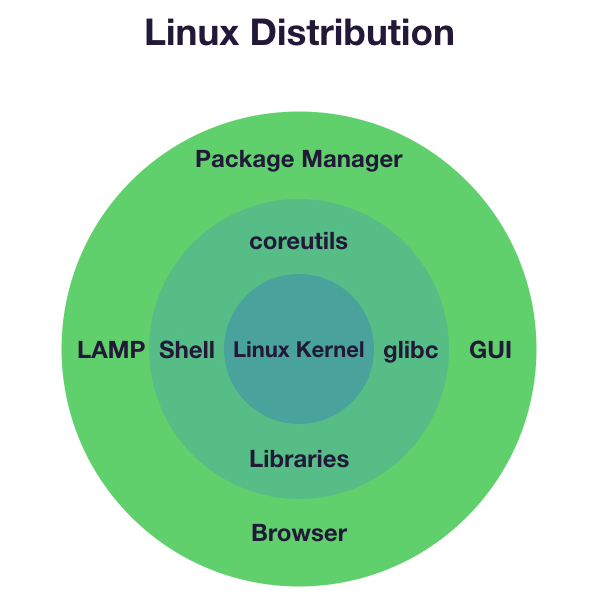
The common understanding is that an Operating System is composed by a “kernel” and some basic tools around it. This apply to all Operating Systems out there, not just Linux/Unix based ones.
Speaking about “Linux”, you might not be aware of the “GNU/Linux naming controversy“, where the name “Linux” refers precisely to the “Linux Kernel” and “GNU” refers to the basic components like GNU Compiler Collection (GCC), the GNU C library (glibc), and GNU Core Utilities (coreutils), GNU Bash shell and more. At this point, come to realise that the Linux Kernel and the GNU tools are in a “symbiosis“, and one cannot be used independently of the other. So it is technically more correct to refer to “GNU/Linux Operating System” than a “Linux Operating System”.
However when the words “Linux system or Linux server” is used, it often includes far more that just “GNU/Linux”. For instance, your preferred web server, database, programming language librairies or Graphical Environment (like GNOME) is not part of the “GNU/Linux” group, and this is where the name “Linux Distribution” makes sense.
